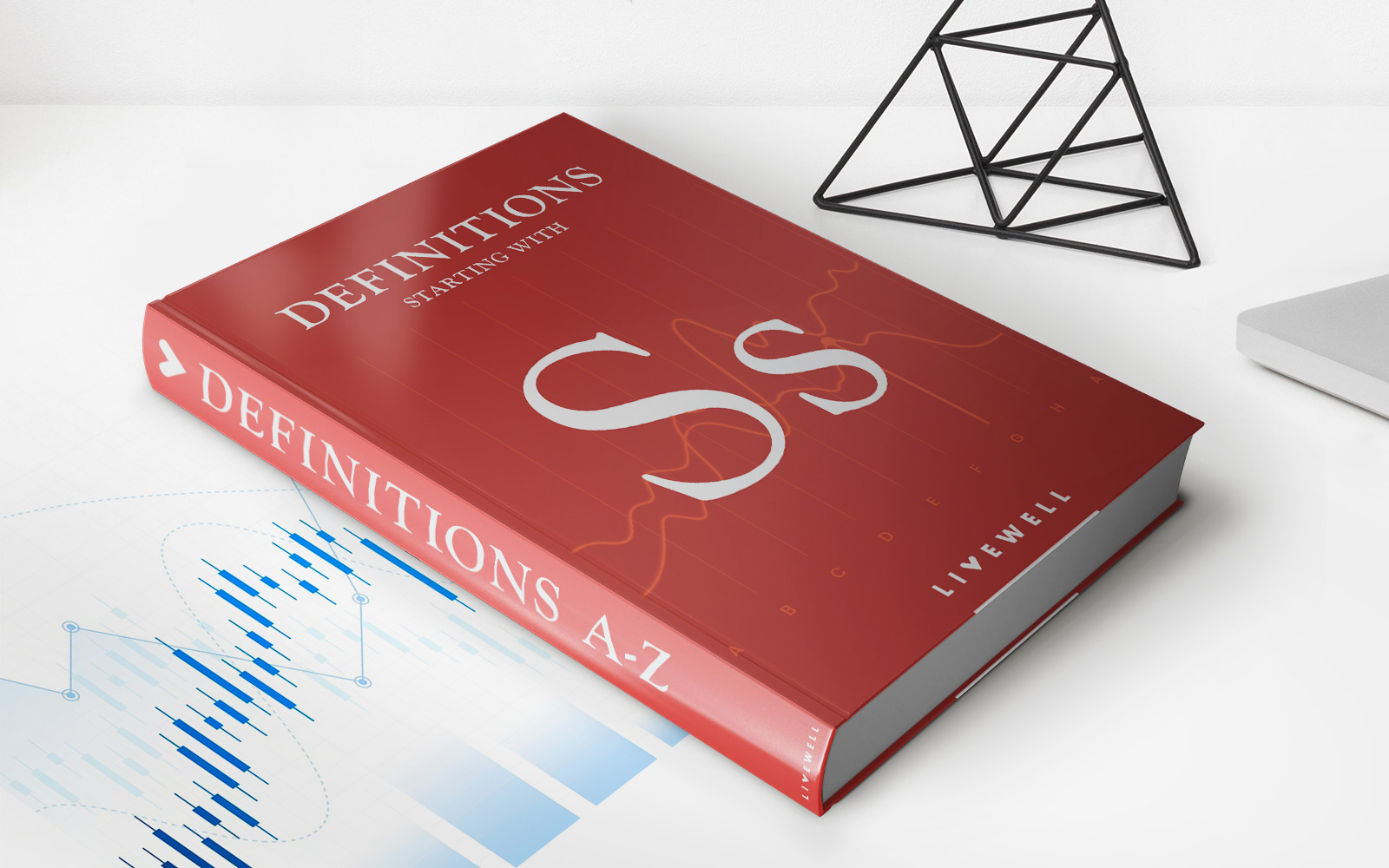

Finance
How To Convert 401K To Roth 401K
Published: October 18, 2023
Learn how to convert your 401K to a Roth 401K and take control of your retirement savings. Discover essential tips and strategies to optimize your financial future.
(Many of the links in this article redirect to a specific reviewed product. Your purchase of these products through affiliate links helps to generate commission for LiveWell, at no extra cost. Learn more)
Table of Contents
- Introduction
- Understanding 401(k) and Roth 401(k)
- Eligibility for Converting 401(k) to Roth 401(k)
- Benefits and Drawbacks of Converting 401(k) to Roth 401(k)
- Steps to Convert 401(k) to Roth 401(k)
- Considerations Before Converting 401(k) to Roth 401(k)
- Tax Implications of Converting 401(k) to Roth 401(k)
- Frequently Asked Questions (FAQs)
- Conclusion
Introduction
Welcome to our comprehensive guide on how to convert your 401(k) into a Roth 401(k). Making this conversion can be a strategic financial move that provides you with several potential benefits, such as tax-free growth and tax-free withdrawals in retirement. However, it is essential to understand the intricacies of this process and determine if it is suitable for your specific financial situation.
Before we delve into the details, let’s start with a brief overview of what a 401(k) and a Roth 401(k) are. A 401(k) is a retirement savings plan offered by employers, which allows employees to contribute a portion of their salary to a tax-advantaged investment account. The contributions are typically made on a pre-tax basis, meaning they are deducted from the employee’s salary before taxes are calculated. The funds within a traditional 401(k) account grow tax-deferred until they are withdrawn in retirement.
In contrast, a Roth 401(k) is a variation of the traditional 401(k) that offers post-tax contributions. This means that the contributions are made with after-tax dollars, but the earnings accumulate tax-free, and qualified withdrawals can be made tax-free in retirement. The main advantage of a Roth 401(k) is the potential to enjoy tax-free growth and withdrawals, which can be particularly beneficial for individuals who anticipate being in a higher tax bracket in retirement.
Now that we have a basic understanding of these retirement savings vehicles, let’s explore the eligibility requirements and considerations when converting a 401(k) to a Roth 401(k).
Understanding 401(k) and Roth 401(k)
Before diving into the details of converting a 401(k) into a Roth 401(k), let’s take a closer look at these retirement savings plans and their key differences.
A 401(k) is a tax-advantaged retirement savings account offered by employers. It allows employees to contribute a portion of their pre-tax salary to an investment account. The contributions are deducted from the employee’s paycheck before taxes are calculated, which provides an immediate tax benefit as the contributions reduce the employee’s taxable income. The funds within the 401(k) grow tax-deferred until they are withdrawn in retirement. At that time, withdrawals are subject to income tax.
On the other hand, a Roth 401(k) is a variation of the traditional 401(k) plan that allows for after-tax contributions. Unlike a traditional 401(k), contributions to a Roth 401(k) are made with after-tax dollars, meaning taxes are paid upfront. However, the major advantage of a Roth 401(k) is that the earnings within the account grow tax-free, and qualified withdrawals in retirement are also tax-free. This can be especially advantageous for individuals who anticipate being in a higher tax bracket in the future.
It’s important to note that not all employers offer a Roth 401(k) option. If your employer offers both traditional and Roth 401(k) plans, you may have the flexibility to contribute to either plan or a combination of both, up to the annual contribution limit set by the Internal Revenue Service (IRS).
When considering whether to contribute to a traditional or Roth 401(k), it’s essential to evaluate your current and future tax situation. If you anticipate being in a lower tax bracket in retirement or expect tax rates to remain relatively stable, a traditional 401(k) may be more advantageous as it offers immediate tax savings. However, if you expect to be in a higher tax bracket when you retire or believe that tax rates will increase, a Roth 401(k) may be a better option due to its tax-free growth and withdrawals.
Understanding the differences between these retirement savings plans sets the foundation for deciding whether to convert a traditional 401(k) into a Roth 401(k). In the next section, we will discuss the eligibility requirements for making this conversion.
Eligibility for Converting 401(k) to Roth 401(k)
Converting a traditional 401(k) into a Roth 401(k) involves transferring your pre-tax retirement savings into an after-tax account. While this conversion can offer potential long-term tax advantages, it’s important to understand the eligibility requirements before proceeding.
First and foremost, you need to check if your employer’s retirement plan allows for in-plan conversions. Not all employer-sponsored retirement plans offer this option, so it’s crucial to review the plan documents or consult with your plan administrator to confirm if you are eligible to convert your 401(k) into a Roth 401(k).
If your employer’s retirement plan permits in-plan conversions, the next consideration is whether you are eligible for a Roth 401(k) in the first place. The eligibility criteria for a Roth 401(k) are typically the same as those for a traditional 401(k). Most employers set specific guidelines for employee participation in their retirement plans, including age and length of service requirements.
Furthermore, there are no income limits for Roth 401(k) contributions, unlike the income restrictions imposed on Roth IRA contributions. This makes the Roth 401(k) an attractive option for high-income earners who are otherwise ineligible for Roth IRA contributions.
It’s important to note that if you are no longer employed by the company that provided the 401(k) plan or if you are over the age of 59½, you may have additional options available to you. You may consider rolling over your 401(k) into a traditional IRA and subsequently converting it into a Roth IRA. This process is known as an indirect conversion or a “backdoor Roth IRA” and does not have the same eligibility restrictions as the in-plan conversion. However, it’s essential to consult with a financial advisor or tax professional before pursuing this strategy, as there may be tax implications and other considerations to evaluate.
Before proceeding with the conversion, it’s important to assess your financial situation, goals, and expected tax implications of the conversion. It may be beneficial to consult with a financial advisor or tax professional to understand the potential benefits and drawbacks specific to your circumstances.
Now that we’ve covered the eligibility requirements, let’s explore the advantages and disadvantages of converting a 401(k) to a Roth 401(k) in the following section.
Benefits and Drawbacks of Converting 401(k) to Roth 401(k)
Converting a traditional 401(k) into a Roth 401(k) can have several benefits, but it also comes with potential drawbacks. Understanding these advantages and disadvantages is crucial in evaluating whether a conversion is the right move for your financial situation.
Benefits:
1. Tax-Free Withdrawals in Retirement: One of the main advantages of a Roth 401(k) is the potential for tax-free withdrawals in retirement. Since the contributions are made with after-tax dollars, all qualified withdrawals are completely tax-free. This can be especially beneficial if you anticipate being in a higher tax bracket in retirement or expect tax rates to rise.
2. Tax-Free Growth: Another significant benefit is that the earnings within a Roth 401(k) grow tax-free. This means you can take advantage of compound growth without having to pay taxes on the investment gains. Over time, this can result in significant tax savings.
3. No Required Minimum Distributions (RMDs): Unlike a traditional 401(k), which requires individuals to start taking required minimum distributions (RMDs) at age 72, a Roth 401(k) does not have this requirement. This provides more flexibility in managing your retirement savings and allows you to potentially grow your account for a longer period without being forced to withdraw funds.
4. Legacy Planning: Roth 401(k) accounts can be powerful tools for wealth transfer. Upon your passing, your beneficiaries can inherit the account and enjoy tax-free withdrawals, providing a tax-efficient way to pass on assets.
Drawbacks:
1. Current Tax Liability: One significant drawback of converting a traditional 401(k) into a Roth 401(k) is the immediate tax liability. When you convert, the amount you convert is treated as taxable income in the year of the conversion. Depending on the size of your 401(k) and your current tax rate, this can result in a substantial tax bill.
2. Impact on Current Finances: Paying taxes on the conversion amount can strain your current finances, as you’ll need to come up with the tax payments from other sources. It’s important to evaluate whether you have sufficient funds available to cover the tax liability without jeopardizing your financial stability.
3. Uncertain Future Tax Rates: While a Roth 401(k) can provide tax-free withdrawals, it relies on the assumption that tax rates will remain the same or increase in the future. If tax rates were to decrease significantly, the advantage of tax-free withdrawals may not be as significant as anticipated.
4. Loss of Potential Tax Deferral: Converting to a Roth 401(k) means giving up the potential tax deferral benefits of a traditional 401(k). By converting, you are locking in the tax liability upfront and sacrificing the ability to defer taxes on contributions and growth.
It’s crucial to carefully weigh these benefits and drawbacks in the context of your financial goals and tax situation. Considering your personal circumstances can help you determine whether converting your 401(k) to a Roth 401(k) aligns with your long-term retirement plan. In the next section, we will outline the steps involved in the conversion process.
Steps to Convert 401(k) to Roth 401(k)
If you’ve determined that converting your 401(k) into a Roth 401(k) aligns with your financial goals, you’ll need to follow a series of steps to complete the conversion process. While the specific procedures may vary depending on your employer’s retirement plan, here are the general steps involved:
Step 1: Review Your Employer’s Plan: Start by reviewing your employer’s retirement plan documents or contacting your plan administrator to understand if in-plan conversions to a Roth 401(k) are permitted. Determine the eligibility criteria and any restrictions that may apply.
Step 2: Evaluate Your Financial Situation: Assess your current financial situation and evaluate the potential tax implications of the conversion. Consider consulting with a financial advisor or tax professional to ensure you fully understand the tax consequences of converting your 401(k) to a Roth 401(k).
Step 3: Update Contribution Elections: If you’re currently contributing to your traditional 401(k), you’ll need to update your contribution elections to allocate future contributions to the Roth 401(k) instead. Your retirement plan administrator can guide you through the process of updating your contribution preferences.
Step 4: Determine Conversion Amount: Decide how much of your existing 401(k) you want to convert into a Roth 401(k). Keep in mind that the converted amount will be considered taxable income in the year of the conversion. You may choose to convert the full balance or select a specific portion based on your tax planning and financial needs.
Step 5: Complete Conversion Documentation: Your employer’s retirement plan administrator will provide the necessary conversion documentation. Ensure that you complete the required forms accurately and provide all the requested information. This typically includes specifying the conversion amount and confirming your understanding of the tax implications.
Step 6: Pay Taxes on Conversion: When you convert a traditional 401(k) into a Roth 401(k), the converted amount is treated as taxable income. You’ll need to pay taxes on this amount in the year of the conversion. Ensure that you have the means to cover the tax liability, either through personal funds or by withholding taxes from the conversion amount.
Step 7: Monitor and Manage Your Roth 401(k): Once the conversion is complete, it’s crucial to monitor and manage your Roth 401(k) account. Review your investment options within the plan and make any necessary adjustments based on your risk tolerance and retirement goals. Regularly monitor the performance of your investments and make any necessary changes to keep your portfolio aligned with your long-term objectives.
Remember, it’s vital to consult with a financial advisor or tax professional to navigate the conversion process effectively. They can provide personalized guidance based on your unique circumstances and ensure you make informed decisions that align with your financial goals.
Considerations Before Converting 401(k) to Roth 401(k)
Before proceeding with the conversion of your 401(k) into a Roth 401(k), it’s essential to carefully consider several factors that can impact the suitability and timing of the conversion. Evaluating these considerations can help ensure you make an informed decision that aligns with your financial goals.
1. Tax Implications: Converting a traditional 401(k) into a Roth 401(k) triggers an immediate tax liability. The converted amount will be treated as taxable income in the year of the conversion. Carefully evaluate your current tax bracket and assess whether you have the financial means to pay the taxes without causing strain on your budget.
2. Time Horizon: Consider your time horizon until retirement. The longer the time you have until retirement, the more opportunities there are for tax-free growth within a Roth 401(k). If you have several years or even decades until retirement, converting to a Roth 401(k) may provide more significant long-term benefits.
3. Financial Situation: Evaluate your current financial situation and liquidity needs. Converting a significant portion of your 401(k) into a Roth 401(k) could require a substantial upfront tax payment. Ensure that you have enough liquid funds available to cover the tax liability without jeopardizing your financial stability.
4. Retirement Withdrawal Strategy: Assess how the conversion will fit into your overall retirement withdrawal strategy. Converting to a Roth 401(k) can impact your taxable income in retirement, potentially reducing your future tax burden. Consider other sources of retirement income, such as Social Security benefits, pensions, and other investments, to determine the optimal strategy for withdrawals.
5. Future Tax Rates: Consider your expectations for future tax rates. While a Roth 401(k) offers tax-free withdrawals in retirement, it assumes that tax rates will remain the same or increase. If you anticipate being in a lower tax bracket during retirement or foresee significant tax rate decreases, converting to a Roth 401(k) may not be as advantageous.
6. Flexibility and Access to Funds: Assess your need for flexibility and access to funds. Once you convert to a Roth 401(k), there are generally fewer options for early withdrawals without penalties. If you anticipate needing to access your retirement savings before reaching retirement age, carefully consider the potential limitations of a Roth 401(k).
7. Estate Planning: Evaluate how converting to a Roth 401(k) aligns with your estate planning goals. A Roth 401(k) allows for tax-free withdrawals for beneficiaries upon your passing, potentially providing a tax-efficient way to pass on assets. If leaving a tax-free inheritance is a priority for you, converting to a Roth 401(k) might be advantageous.
By carefully considering these factors, you can make an informed decision about whether converting your 401(k) to a Roth 401(k) is the right step for your financial situation. It’s crucial to seek guidance from a financial advisor or tax professional who can provide personalized advice tailored to your specific circumstances and retirement goals.
Tax Implications of Converting 401(k) to Roth 401(k)
Converting your traditional 401(k) into a Roth 401(k) has significant tax implications that must be carefully considered. Understanding these tax implications can help you make an informed decision and plan accordingly.
1. Taxable Conversion: When you convert a traditional 401(k) into a Roth 401(k), the converted amount is treated as taxable income in the year of the conversion. This means you will owe taxes on the amount converted based on your current tax bracket. It’s essential to determine if you have the financial means to cover the tax liability resulting from the conversion.
2. Potential Increase in Tax Bracket: The additional taxable income from the conversion may push you into a higher tax bracket. It’s crucial to consider the impact of this increase and evaluate whether the long-term benefits of tax-free growth and withdrawals in retirement outweigh the immediate tax liability.
3. No Early Withdrawal Penalty: Converting your 401(k) into a Roth 401(k) does not incur early withdrawal penalties, even if you are under the age of 59½. This can be advantageous for individuals who want to access their retirement funds before reaching retirement age.
4. No Required Minimum Distributions (RMDs): One significant advantage of a Roth 401(k) is that it is not subject to required minimum distributions (RMDs) during your lifetime. Traditional 401(k) accounts require individuals to start taking RMDs at age 72, which can increase taxable income and potentially push you into a higher tax bracket. With a Roth 401(k), you have more flexibility in managing your withdrawals in retirement.
5. Tax-Free Growth and Distributions: After the conversion, the funds within your Roth 401(k) will grow tax-free. This means you won’t owe taxes on the investment gains or qualified withdrawals made in retirement. This can provide valuable tax advantages, especially if you anticipate being in a higher tax bracket in the future.
6. Potential for Reduced Tax Liability in Retirement: By converting to a Roth 401(k), you are potentially reducing your future tax liability. Qualified withdrawals from a Roth 401(k) are tax-free, which can help minimize your taxable income during retirement. This can be especially beneficial if you expect your income tax rates to be higher in retirement or if you anticipate changes in tax laws.
7. Impact on Beneficiaries: Converting to a Roth 401(k) can have legacy planning advantages. Upon your passing, your beneficiaries can inherit the Roth 401(k) account and enjoy tax-free withdrawals. This provides an opportunity for tax-efficient wealth transfer.
It’s important to note that the tax implications of converting your 401(k) to a Roth 401(k) can vary based on your specific circumstances, including your current income, retirement goals, and future tax expectations. Consulting with a financial advisor or tax professional is highly recommended to understand the potential tax consequences and make an appropriate decision aligned with your financial objectives.
Frequently Asked Questions (FAQs)
Here are some common questions regarding converting a 401(k) to a Roth 401(k):
Q1: Is there a limit on how much I can convert from my 401(k) to a Roth 401(k)?
A1: There are generally no limits on the amount you can convert from a traditional 401(k) to a Roth 401(k). However, any amount converted will be treated as taxable income in the year of the conversion.
Q2: Can I undo the conversion if I change my mind?
A2: Once a conversion is made, it is generally irreversible. However, if you have converted your 401(k) to a Roth 401(k) and later decide it was not the right choice, you can potentially undo the conversion within the same tax year through a recharacterization. It’s important to check with your plan administrator and consult with a financial advisor to understand the specific rules and deadlines for recharacterization.
Q3: Can I convert my pre-tax contributions and earnings to a Roth 401(k)?
A3: Yes, you can convert both your pre-tax contributions and the earnings they have generated to a Roth 401(k). However, keep in mind that the converted amount will be treated as taxable income and taxes will need to be paid on the converted amount.
Q4: Can I convert my 401(k) to a Roth IRA instead?
A4: If you no longer work for the company offering the 401(k) plan or you are over the age of 59½, you may have the option to roll over your 401(k) into a traditional IRA and subsequently convert it to a Roth IRA. This is known as an indirect conversion or a “backdoor Roth IRA.” However, it’s crucial to understand the tax implications and consult with a financial advisor or tax professional before pursuing this strategy.
Q5: Will converting my 401(k) affect my eligibility for other retirement savings options?
A5: Converting your 401(k) to a Roth 401(k) does not impact your eligibility for other retirement savings options, such as contributing to a traditional IRA or Roth IRA. However, it’s important to note that there are annual contribution limits for these accounts, so assess your overall retirement savings strategy to ensure you stay within the allowed contribution limits.
Remember, these FAQ responses provide general information and may not cover every individual’s unique circumstances. It is crucial to consult with a financial advisor or tax professional who can provide personalized guidance based on your specific situation and goals.
Conclusion
Converting a traditional 401(k) to a Roth 401(k) can offer tax advantages and flexibility in retirement planning. It is a decision that requires careful consideration of your financial situation, goals, and potential tax implications.
Understanding the differences between these retirement savings plans is crucial. A traditional 401(k) offers pre-tax contributions with tax-deferred growth, while a Roth 401(k) provides tax-free growth and tax-free withdrawals in retirement.
Before proceeding with the conversion, take time to evaluate your eligibility, current financial situation, and potential benefits and drawbacks. Consider factors such as the immediate tax liability, future tax expectations, and the impact on your retirement withdrawal strategy.
If you decide to convert, be prepared to complete the necessary paperwork and pay taxes on the converted amount. Monitor and manage your new Roth 401(k) account, and consult with a financial advisor or tax professional along the way to ensure you make informed decisions aligned with your goals.
Remember that everyone’s financial circumstances are unique. It’s important to seek personalized advice tailored to your specific needs and consult with professionals who can guide you through the conversion process.
Converting your 401(k) to a Roth 401(k) can be a strategic move to potentially achieve tax-free growth and tax-free withdrawals in retirement. With careful planning and consideration, you can make the right choice for your long-term financial well-being.














